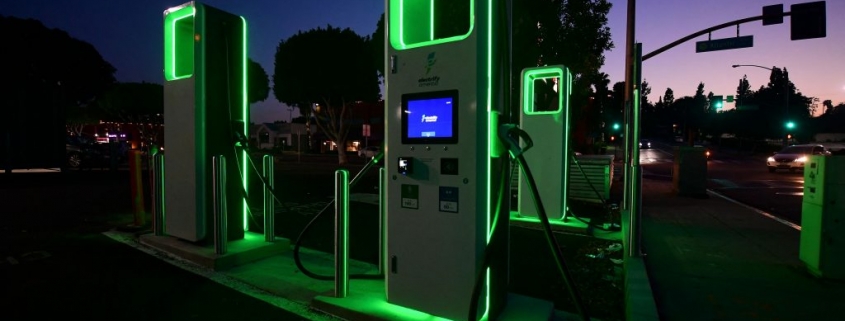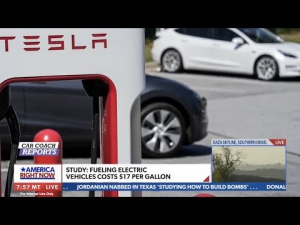Top 3 Reasons Why It’s so Hard to Switch to Electric Vehicles
Electric vehicles are seen as the solution to one of the biggest problems we will ever encounter in our lifetime: the climate crisis. The automotive industry is one of the biggest producers of carbon emissions, so countries around the world are working diligently to drastically reduce greenhouse gases. The United States has passed a bipartisan infrastructure bill to build more electric vehicle charging infrastructure to support EVs. Why is it so hard to make the switch to electric vehicles when there is a global push to reduce carbon emissions?
Making the switch to electric vehicles
Carl Benz created the first gasoline engine. The one-cylinder engine ran for the first time in the year 1879. Later in 1892, the automobile was invented, and gasoline became the common fuel source for this amazing new mode of transportation. Just a few years later, most of the world became dependent on gasoline to power its vehicles. As vehicle production developed, the factories used to produce the vehicles and the automobiles themselves gulped and guzzled more gas.
A century ago, mankind had no idea what the burning of fossil fuels could do to the environment generations later. Now the descendants of those that drove the first automobile live in a world polluted by carbon emissions. Some suffer health conditions because of proximity to highways. Natural disasters are much more common and don’t seem as ‘natural’ anymore as we track the effects of depleting the ozone layer.
Electric vehicles have made great strides. Companies like Tesla are producing reliable electric vehicles capable of traveling over 250+ miles on a full battery. Electric vehicle fast-charging networks are being established. The entire automotive industry seems to be focused on producing electric vehicles. So why aren’t electric vehicle sales in America responsible for more of the total new-vehicle market share? Why are people so hesitant to make the switch to electric?
1. Fear of the unknown

Americans have driven gas-powered cars for over a hundred years. Even in terms of individual experience, most adult Americans that drive have more experience with internal combustion engine vehicles. Electric vehicles are new, they represent change. Humans are creatures of habit, and change is frightening.
What’s even more frightening is the unknown. Since electric vehicles are so new to the market, consumers don’t necessarily understand what they’re signing up for when purchasing an EV. There are still many unknowns when dealing with electric vehicles in areas like reliability, longevity, and costs of ownership. Leaving behind the comfort of gas-powered vehicles is still too adventurous for many consumers.
2. Frequent recalls

For those who have done less research about EVs, it’s easy to believe that electric vehicles are more dangerous than the average gas-powered car. Electric vehicle fires are making headlines often, and recalls from companies like General Motors are frequent. The Chevrolet Bolt opened doors for American EVs, but it has also set them back after experiencing great sales.
The Chevrolet Bolt was a popular electric vehicle until many of the models began to catch on fire. This led to fear and waves of recalls. The most recent recall extended to all Chevy Bolt models, indicating that the vehicle is a failure. The company has to make significant changes to all Bolt models to keep their batteries from catching on fire.
3. Electric vehicle battery range

According to J.D. Power, another reason why drivers won’t make the switch to electric is because of limited EV battery range. The average gas-powered automobile can travel approximately 350+ miles on a full tank of gas. Vehicles with great fuel efficiency and hybrid models can travel much further on full tanks. Electric vehicles tend to travel under 250 miles on a full battery.
More electric vehicles are being built with battery ranges above 250 miles. Long-range models are being produced that have over 300+ miles of battery range, but this range often comes at a high price. The average electric vehicle needs to refuel sooner than the average gas-powered car, and the refueling process can take much longer.
The current state of the electric vehicle market

The market for EVs is in the best shape that it has ever been. Electric vehicles account for a larger percentage of the new vehicle market share than ever before. EVs still have a long way to go despite these strides.
For electric vehicles to truly succeed, customers will have to deem them trustworthy. They also should be practical and affordable. Tesla and Ford are currently the closest to producing a lineup of electric vehicles that consumers approve of. Making the switch to electric vehicles isn’t easy, but it could have a major impact on the future of the environment.
RELATED: How Many Years Will an Electric Vehicle Last?
The post Top 3 Reasons Why It’s so Hard to Switch to Electric Vehicles appeared first on MotorBiscuit.







